List items
Items from the current list are shown below.
Blog
All items from December 2016
"And your battery has become rather shite;
And yet you incessantly compile all this code –
Do you think, at your age, it is right?"
"In my youth," Acer Laptop replied to the man,
"I feared it might injure my core;
But now that I'm perfectly sure I have none
Why, I do it much more then before."
"You are old," said the man, "As I mentioned before,
And have grown most uncommonly hot;
Yet you render in Blender in HD or more –
Pray, don't you think that's rather a lot?"
"In my youth," said the Acer, as he wiggled his lid,
"I kept all my ports very supple
By the use of this app—installed for a quid—
Allow me to sell you a couple?"
"You are old," said the man, "And your threading's too weak
For anything tougher than BASIC;
Yet you ran Java 5 with its memory leak –
Pray, how do you manage to face it?"
"In my youth," said the laptop, "I took a huge risk,
And argued emacs over vim;
And the muscular strength which it gave my hard disk,
Has lasted through thick and through thin."
"You are old," said the man, "one can only surmise
That your circuits are falling apart;
Yet you balanced a bintree of astonishing size—
What made you so awfully smart?"
"I have answered three questions, now leave me alone,"
Said the Acer; "It's true I'm not brand new!
Do you think I'm like Siri on a new-fangled phone?
Be off, or I'll have to unfriend you!"
My current laptop is getting a bit long-in-the-tooth. It's an Acer Aspire S7 which Joanna and I bought cheap a couple of years ago as an ex-display machine. It's a thin, light ultrabook that's worked really well with Linux and still feels powerful enough to use as my main development machine. Amongst it's excellent qualities, the only two negatives have been a rather loud fan, and a less-than-perfect keyboard.
Still, it's getting a bit worn-out now and I've used it so much some of the keys have worn through to the backlight. I've also noticed some very appealing ultrabook releases recently, including the new Acer Swift 7 and the Asus Zenbook 3. Both of these hit important milestones, with the Swift being less than 1cm think, and the Zenbook coming in at under 1kg in weight. Impressive stuff.
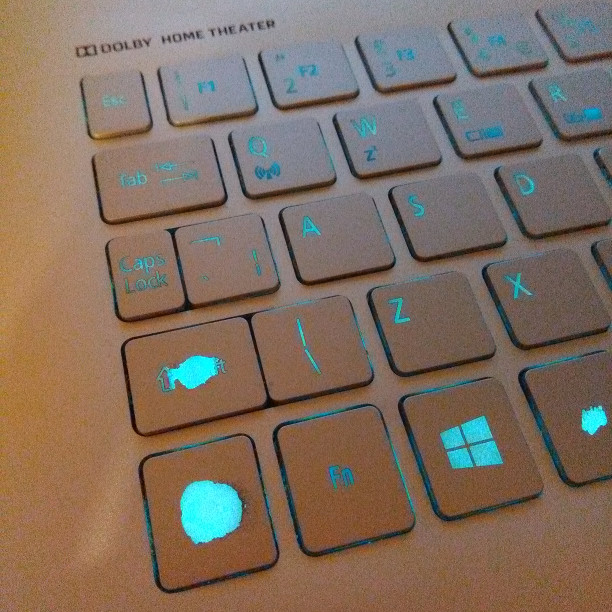
With these two releases having piqued my interest, and with my current machine due for renewal, it seemed like a good time to reassess the ultrabook landscape and figure out whether I can justify getting a new machine.
Most manufacturers now offer some impressive ultrabook designs. HP has its Elitebook and Spectre ranges, Apple's MacBook Pro now falls firmly within the category, Dell has the XPS devices and Razer is a newcomer to the ultrabook party with its new Blade Stealth laptop. They all seem to have received decent reviews and there's clearly been some design-love spent on them all.
However, they are also all expensive machines (around the £1000 mark). I'm going to use this as my main work machine for the next couple of years, during which time it'll get daily use, so I have no qualms about spending a lot on a good laptop. On the other hand, if I make a bad decision it'll be an expensive mistake. Given this, it's only sensible I should spend some time considering the various options and try to make a decision not just based on instinct, but on the hard specs for each machine.
There are plenty of reviews online which there's no need for me to duplicate; however I have some particular requirements and preferences, so this analysis is based firmly on these.
My requirements are for a thin, light laptop that's got a really good screen (the larger and higher the resolution the better). When I say thin, I mean ideally 1cm or thinner. By light, I mean as close to 1kg as possible. By good screen, it should be at least a 13in screen with better-than-FHD resolution (given FHD is what my current laptop supports). Any new machine must be better than my current laptop by a significant margin. My current laptop is still perfectly usable, and I'm happy with the size, weight, processing speed and resolution; but it doesn't make sense to get a new machine if it's not going to be a noticeable upgrade.
I've been single-booting Linux for many years now, and plan to do the same with whichever laptop I get next. That means the Windows/macOS distinction is irrelevant for me: they'll get wiped off as the first thing I do with the machine either way.
Before starting this task I was certain I'd end up getting the Acer Swift 7. Based on the copy I'd read, it's the thinnest 13.3in laptop you can buy and looks quite attractive to me (apart from the horrible 'rose gold' colour; ugh). If this didn't work out, I thought the numbers would point in the direction of an Apple device, given almost everyone I know in the Computer Lab uses an Apple laptop (there must be something in that, right?). After carefully working through the specs, I've been really surprised by the results.
The MacBook Pro appears to be decent in most areas, but in fact is worse than the best of its competitors in almost all respects. Since I don't want to run macOS, the only thing in its favour is the attractive design. The MacBook Air is really showing its age now, and is even beaten by the MacBook Pro on everything except price.
The Swift 7 is thin, but turns out to be a really poor choice. That just goes to show how unreliable my gut instinct is and I'm glad I didn't buy it without looking at the alternatives. It's running an M-class processor with no touchscreen or keyboard backlight. The port selection is average and in practice its only strengths are the thin chassis and fanless design. Both are nice features, but the result of the package is hardly an upgrade over my existing machine.
The Razer Blade Stealth was originally down as my alternative choice. It has a gloriously high-resolution (3840 * 2160) screen, and personally I love the multi-coloured keyboard lighting. Some might say it's a just gimmick, and I could never justify a purchase because of it (especially bearing in mind it almost certainly won't work properly on Linux), but I still think it's glorious. Unfortunately the Stealth turns out to have a small screen size and suffers problems running Linux. Both are show-stoppers for me.
The Zenbook also looks really appealing, with its incredibly lightness. Unfortunately, like the Stealth it suffers from a smaller screen size and Linux problems. Too bad.
I kept the Spectre in for comparison, but I could never have gone for it given it's horrific aesthetics. I admit, I'm shallow. Nevertheless, it turns out it doesn't offer enough of an upgrade over my existing system anyway (same resolution, worse dimensions and weight).
The unequivocal standout winner is the Dell XPS. In some ways I'm sad about this, as in my mind I associate Dell with being the height of box-shifting PC dullness. Dell's aggressive product placement really puts me off. The machine itself doesn't have a particularly spectacular design. Yet there's no denying the numbers, and the screen really does appear to be way-ahead of the competition, with its unusually thin bezel, high-resolution and decent size. I was tempted by the 15 in version, given its discreet graphics, but the size and weight just nudge outside the area I feel is acceptable for me.
That leaves only the XPS 13 standing. To top everything else off, Dell is the only company to officially support Linux (Ubuntu) on its machines, which it deserves credit for. I'm not sure whether I'll end up getting a new laptop at all, but if I do I'd want it to be this.
Scroll past the pictures to see my full 'analysis' of the different laptops.
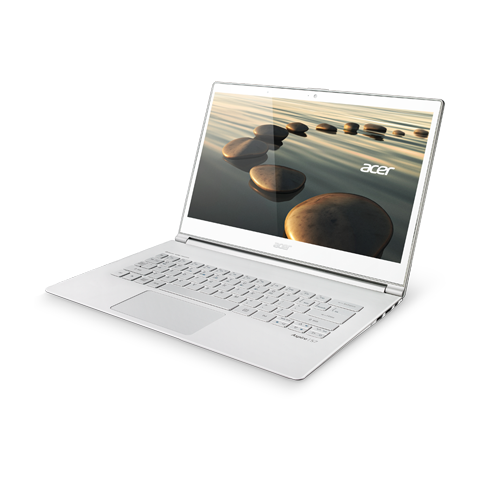 |
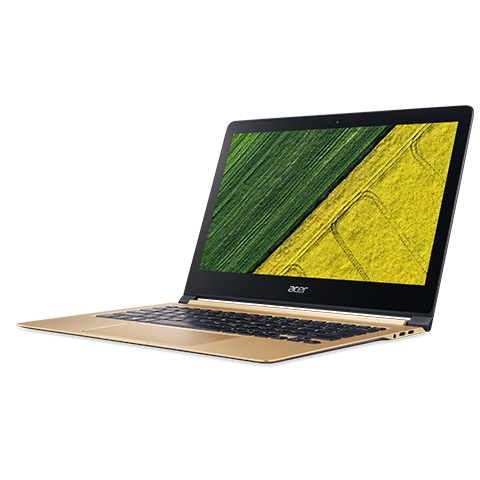 |
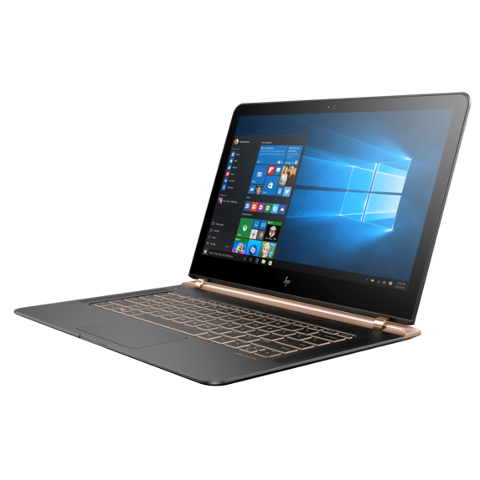 |
| Acer Aspire S7 | Acer Swift 7 | HP Spectre 13t |
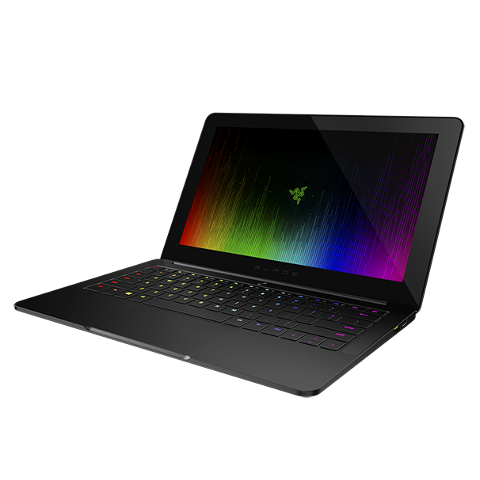 |
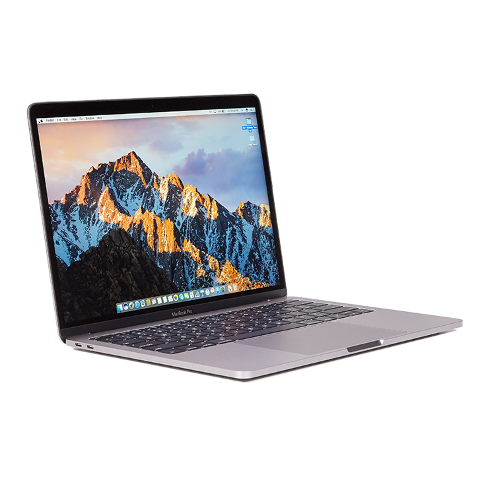 |
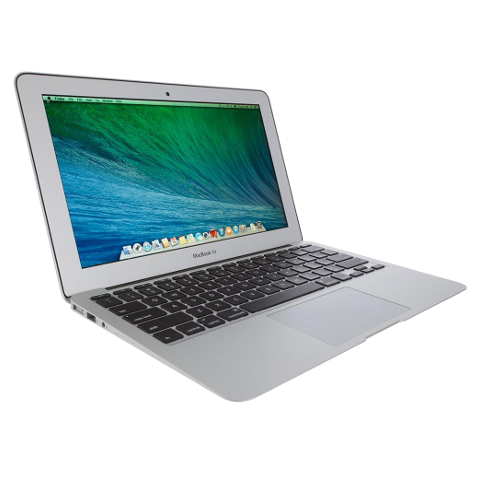 |
| Razer Blade Stealth | MacBook Pro | MacBook Air |
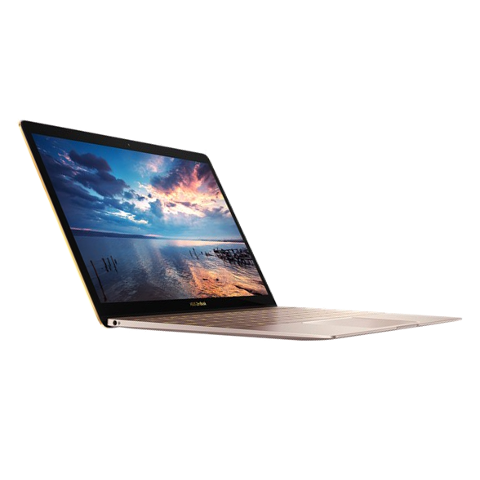 |
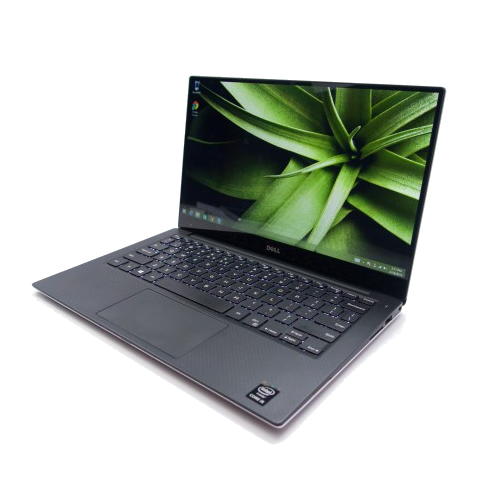 |
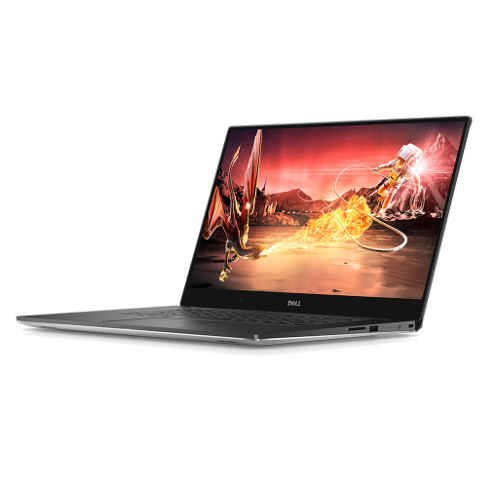 |
| Asus Zenbook 3 UX390UA | Dell XPS 13 | Dell XPS 15 |
Colour coding:
| Best |
| Better |
| The same as my current Acer Aspire S7 |
| Worse |
| Show-stopper |
|
Acer Aspire S7 |
Acer Swift 7 |
HP Spectre 13t (or 13-v151nr) |
Razer Blade Stealth |
MacBook Pro |
|
|
CPU |
1.9GHz Intel Core i5-3517U |
1.2GHz Intel Core i5-7Y54 |
2.5GHz Intel Core i7-6500U |
2.7GHz Intel Core i7-7500U |
3.3GHz Intel Core i7 |
|
RAM (max) |
4GB, 1600MHz DDR3 |
8GB, LPDDR3 |
8GB, LPDDR3 |
16GB, 1866MHz LPDDR3 |
16GB, 2133MHz LPDDR3 |
|
NVM (max) |
256GB SSD |
256GB SSD |
512GB SSD |
1TB SSD |
1TB SSD |
|
GPU |
Intel HD4000 |
Intel HD615 |
Intel HD620 |
Intel HD620 |
Intel HD550 |
|
Resolution |
1920x1080 |
1920x1080 |
1920x1080 |
2560x1440 or 3840x2160 |
2560x1600 |
|
Screen size (in) |
13.3 |
13.3 |
13.3 |
12.5 |
13.3 |
|
Battery (hours) |
6 |
9 |
9.75 |
9 |
10 |
|
Height (mm) |
11.9 |
9.98 |
10.4 |
13.1 |
14.9 |
|
Width (mm) |
323 |
324.6 |
325 |
321 |
304.1 |
|
Depth (mm) |
223 |
229.6 |
229.4 |
206 |
212.4 |
|
Weight (kg) |
1.3 |
1.13 |
1.16 |
1.29 |
1.37 |
|
Touchscreen |
Yes |
No |
No |
Yes |
No |
|
Fan |
Yes |
No |
Yes |
Yes |
Yes |
|
Backlit keyboard |
Yes |
No |
Yes |
Yes |
Yes |
|
Ports |
USB2*2, 3.5mm, HDMI, SD, AC |
USB3*2, 3.5mm |
USB3*3, 3.5mm |
USB3*2, 3.5mm, HDMI, AC |
USB3*2, 3.5mm |
|
Aesthetics |
|||||
|
Linux compat |
Good |
Reportedly works OK |
Unknown |
Works with glitches (e.g. WiFi) |
Currently flaky (will improve) |
|
Price (£) |
1000 |
1035 |
1250 |
1450 |
|
|
Price spec |
8GB, 256GB |
8GB, 256GB |
16GB, 256GB |
8GB, 256GB |
|
|
Notes |
Has been perfect, apart from the poor keyboard |
Underpowered, and not big enough upgrade to be worthwhile |
Ugly, ugly, ugly |
Really tempting, good value, but small screen size is a problem |
Quite big and heavy. Decent, but the Dell XPS 13 is better in every respect |
|
Acer Aspire S7 |
MacBook Air |
Asus Zenbook 3 UX390UA |
Dell XPS 13 |
Dell XPS 15 |
|
|
CPU |
1.9GHz Intel Core i5-3517U |
2.2GHz Intel Core i7 |
Intel Core i7-7500U |
3.1GHz Intel Core i5-7200U |
3.5GHz Intel Core i7-6700HQ |
|
RAM (max) |
4GB, 1600MHz DDR3 |
8GB, 1600MHz LPDDR3 |
16GB, 2133MHz LPDDR3 |
8GB, 1866MHz LPDDR3 |
32GB, 2133MHz DDR4 |
|
NVM (max) |
256GB SSD |
512GB SSD |
512GB SSD |
256GB SSD |
512GB SSD |
|
GPU |
Intel HD4000 |
Intel HD6000 |
Intel HD620 |
Intel HD620 |
NVIDIA GeForce GTX 960M |
|
Resolution |
1920x1080 |
1440x900 |
1920x1080 |
3200x1800 |
3840x2160 |
|
Screen size (in) |
13.3 |
13.3 |
12.5 |
13.3 |
15.6 |
|
Battery (hours) |
6 |
12 |
9 |
18 |
17 |
|
Height (mm) |
11.9 |
17 |
11.9 |
15 |
17 |
|
Width (mm) |
323 |
325 |
296 |
304 |
357 |
|
Depth (mm) |
223 |
227 |
191 |
200 |
235 |
|
Weight (kg) |
1.3 |
1.35 |
0.91 |
1.29 |
1.78 |
|
Touchscreen |
Yes |
No |
No |
Yes |
Yes |
|
Fan |
Yes |
Yes |
Yes |
Yes |
Yes? |
|
Backlit keyboard |
Yes |
Yes |
Yes |
Yes |
Yes |
|
Ports |
USB2*2, 3.5mm, HDMI, SD, AC |
USB3*2, 3.5mm, TB, SD, AC |
USB3, 3.5mm |
USB3*3, 3.5mm, SD, AC |
USB3*3, 3.5mm, SD, HDMI, AC |
|
Aesthetics |
|||||
|
Linux compat |
Good |
Works |
Works but volume, FP, HDMI issues |
Officially supported |
Reported to work well |
|
Price (£) |
1100 |
1500 |
1250 |
1749 |
|
|
Price spec |
8GB, 256GB |
16GB, 521GB |
8GB, 256GB |
16GB, 512GB |
|
|
Notes |
Has been perfect, apart from the poor keyboard |
The low resolution being worse than my current laptop, as well as being thick, rules this out |
Thin and really light, makes it really appealing, but the small screen size is a problem |
Relatively thick and heavy, but the screen is really great |
Just a bit too big and heavy to be viable |
The work we did allowed us to search for the original master passwords that people use with PwdHash. Passwords which are used to generate the more complex site-specific passwords given to websites, and which may then have been exposed by recent password leaks in hashed form. We were surprised, both by the number of master passwords we were able to find, and the speed with which hashcat was able to eat its way through the leaked hashes.
Running on an Amazon EC2 instance, we were able to work through the SHA1-hashed LinkedIn.com leak by generating 40 million hashes per second. In total we were able to recover 75 master passwords from the leak, as well as further master passwords from the Stratfor.com and Rootkit.com leaks.
Feel free to download the paper and presentation slides, or watch the video captured during the conference (unfortunately there's only audio with no video for the first segment).
Here are a few of the master passwords Graham was able to recover from the password leaks.
| Domain | Leaked hash | Password |
|---|---|---|
| Stratfor | e9c0873319ec03157f3fbc81566ddaa5 | frogdog |
| Rootkit | 2261bac1dfe3edeac939552c0ca88f35 | zugang |
| Rootkit | 43679e624737a28e9093e33934c7440d | ub2357 |
| Rootkit | dd70307400e1c910c714c66cda138434 | erpland |
| 508c2195f51a6e70ce33c2919531909736426c6a | 5tgb6yhn | |
| ed92efc65521fe5074d65897da554d0a629f9dc7 | Superman1938 | |
| 5a9e7cc189fa6cf1dac2489c5b81c28a3eca8b72 | Fru1tc4k3 | |
| ba1c6d86860c1b0fa552cdb9602fdc9440d912d4 | meideprac01 | |
| fd08064094c29979ce0e1c751b090adaab1f7c34 | jose0849 | |
| 5264d95e1dd41fcc1b60841dd3d9a37689e217f7 |
I'll leave it as an exercise for the reader to decide whether these are sensible master passwords or not.